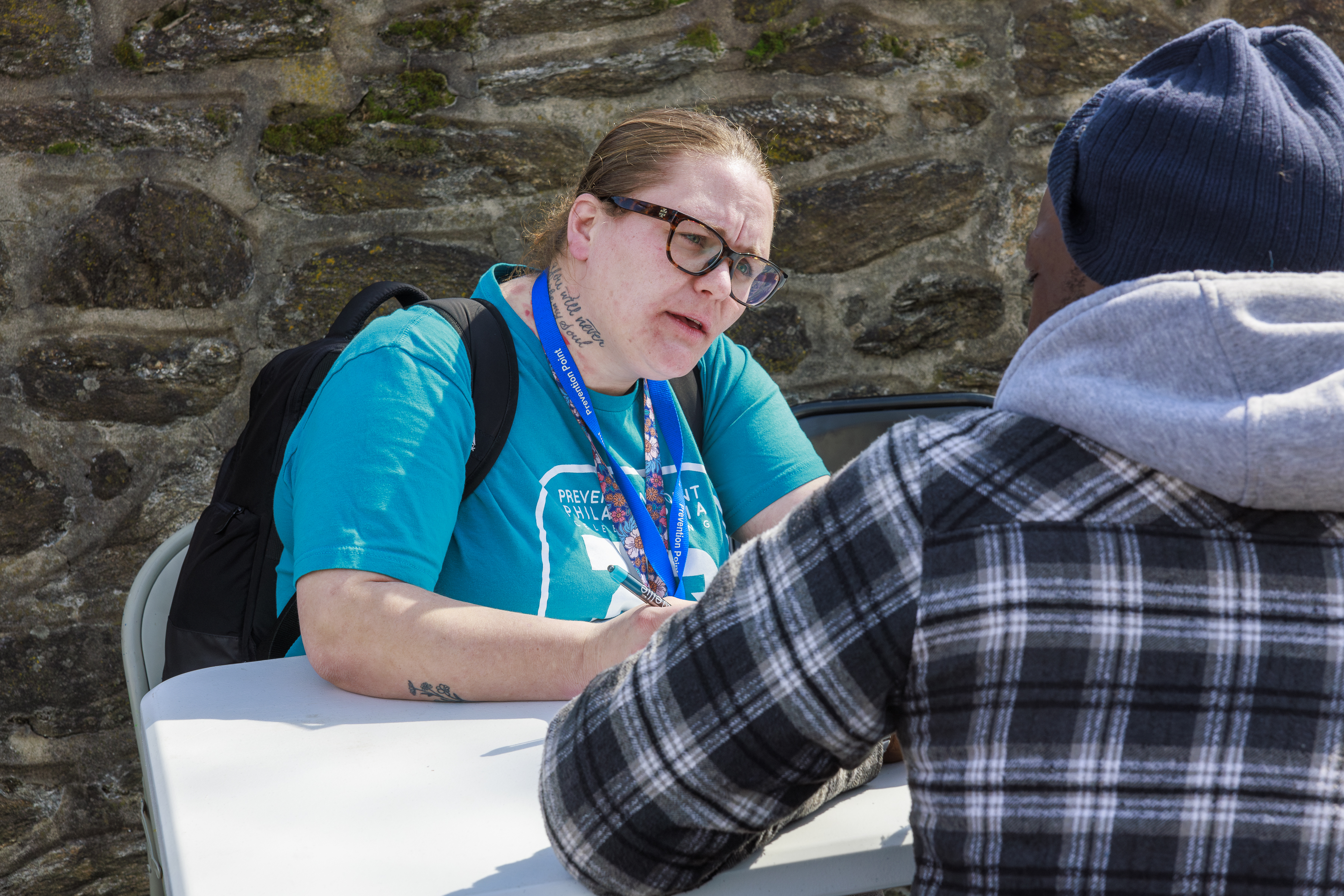
A new piece from Penn's Leonard Davis Institute features Prevention Point Philadelphia's (PPP's) mobile drug treatment and overdose response unit, an innovative program designed to address the needs of communities affected by substance use beyond Kensington. The piece highlights how PPP partners with terrific institutions and medical providers while helping each individual we serve define and meet their goals. Big thanks to Penn LDI, reporter Nancy Stedman, photographer Daniel Burke, Rev. Father MacIvan Rogers, and all of the providers, researchers, and PPP staff who made this happen.
..........
Christopher Allen was ready for a fresh start. On an unseasonably warm afternoon in March, Allen, in his early 30s, walked to the 6800 block of Woodland Avenue in Southwest Philadelphia, where a Mobile Overdose Surge Response Bus from Prevention Point Philadelphia, a nonprofit public health agency, was parked. In an almost street-fair-like atmosphere, snacks, packages of the opioid overdose reversal drug Narcan, and drug test strips were offered on fold-up tables. Reverend MacIvan Rogers of the nearby St. James Church of Kingsessing, a strong supporter of the Prevention Point bus, stopped by to chat. Three physicians from the University of Pennsylvania’s Perelman School of Medicine evaluated eight clients, while case managers from Prevention Point helped them find jobs and housing. And staffers from the city’s Department of Behavioral Health and Intellectual disAbility Services told passersby about their mental health services.

The professionals here “are all really good at making people feel comfortable,” said Judy Chertok, Director of Addiction Medicine in the department of Family Medicine and Community Health at the University of Pennsylvania.
After a 45-minute visit, Allen had renewed a prescription for Suboxone, a drug that cuts opioid cravings and dramatically reduces the risk of overdosing, and he joined a counseling program. He felt that stopping by a van for medications for opioid use disorder (MOUD) was preferable to visiting a clinic or doctor’s office, places that in the past had made him feel unwelcome. “People got edgy in there,” he recalled.
Others share Allen’s discomfort. “There is some evidence that many people won’t go to traditional medical settings to seek health care,” said LDI Senior Fellow Shoshana Aronowitz, Assistant Professor in the Department of Family and Community Health at Penn Nursing. “The point of street medicine is to meet people where they are and provide care if they don’t want to or can’t go into a clinic.” Read the whole piece here.